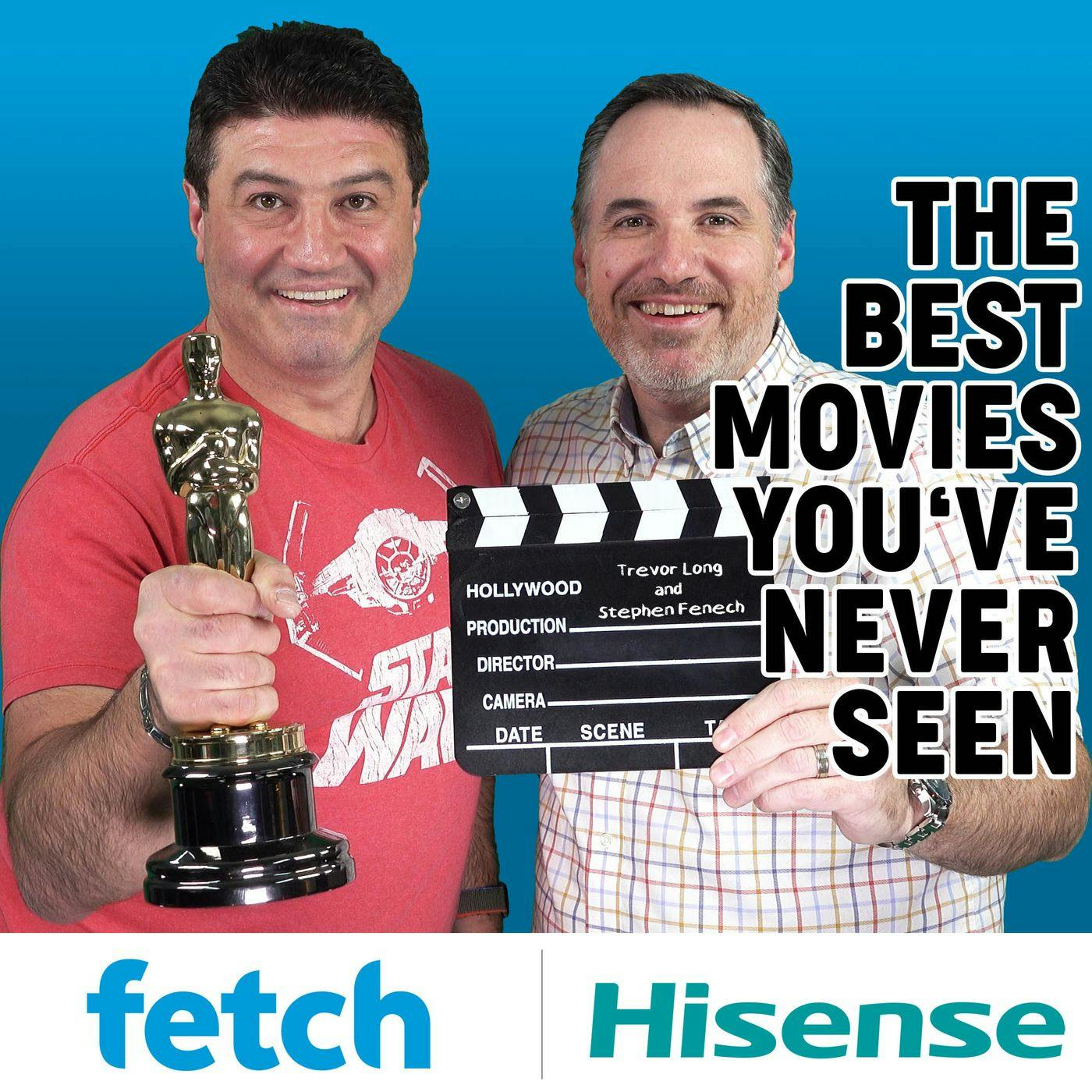.png)
The Late Bloomer Actor
Welcome to "The Late Bloomer Actor", a monthly podcast series hosted by Australian actor David John Clark.
Join David as he engages in discussions with those that have helped him on his journey as a late bloomer actor, where he shares personal stories, insights, and wisdom gained from his unique path as a late bloomer actor and the lessons he has learned, and continued to learn, from the many sources available in the acting world.
Each episode features conversations with actors and industry insiders that have crossed paths with David who generously offer their own experiences and lessons learned.
Discover practical advice, inspiration, and invaluable insights into the acting industry as David and his guests delve into a wide range of topics. From auditioning tips to navigating the complexities of the industry, honing acting skills, and cultivating mental resilience, every episode is packed with actionable takeaways to empower you on your own acting journey.
Whether you're a seasoned actor, an aspiring performer, or simply curious about the world of acting, "The Late Bloomer Actor" is here to support your growth and development. Tune in to gain clarity, confidence, and motivation as you pursue your dreams in the world of acting. Join us and let's embark on this transformative journey together!
The Late Bloomer Actor
The Chubbuck Technique with Ivana Chubbuck
Text The Late Bloomer Actor a Question or Comment.
In this episode of The Late Bloomer Actor, we speak with Ivana Chubbuck, the founder of the Ivana Chubbuck Studio and creator of the Chubbuck Technique. We discuss Ivana's journey from actress to acting coach, the importance of mindset and bold choices in acting, and how life experiences shape an actor's craft. Ivana emphasizes the need for actors to understand human behavior and to make proactive choices in their careers. The conversation also touches on the cyclical nature of history and storytelling, and Ivana offers valuable advice for struggling actors with a focus on this year's theme of the business side of acting.
Takeaways
- The Chubbuck Technique empowers actors to use their life experiences.
- Mindset is crucial for success in the acting business.
- Actors should make bold choices and not play it safe.
- Understanding human behavior is key to effective acting.
- Life experiences enrich an actor's performance.
- The acting industry is unpredictable, but hard work pays off.
- Cyclical patterns in history influence storytelling.
- Actors must humanize their characters to connect with audiences.
- Greatness in acting comes from attention to detail.
Find out about Ivana, her studio and technique here.
And purchase her updated book, The Power Of The Actor at Amazon.com.
Please consider supporting the show by becoming a paid subscriber (you can cancel at any time) by clicking here and you will have the opportunity to be a part of the live recordings prior to release.
Please follow on Facebook, Instagram, YouTube and Tik Tok.
And please Rate the show on IMDB.
This episode was recorded on RiversideFM - click the link to join and record.
And finally, I am a huge advocate for and user of WeAudition - an online community for self-taping and auditions. Sign up with the PROMO code: LATEBLOOMER for 25% of your ongoing membership.
Hello, hello, hello everyone and welcome back to another episode of the Late Bloomer Actor. Today I have a wonderful episode for you. I'm very excited by this one. We are talking to the wonderful Ivana Chubbuck. She is the founder of the Ivana Chubbuck Studio in Los Angeles and the creator of the globally renowned Chubbuck Technique, which has been used by some of the industry's most celebrated actors, including Oscar winners and nominees. She's also the author of the bestselling book, The Power of the Actor, which has been translated into over 20 languages and is used by actors, directors, and coaches around the world. And she's re-releasing The Power of the Actor on April 27th, which has no doubt already occurred when you're listening to this episode. So check it out on Amazon.com or any good bookstore. It will be a wonderful update to the original book. She's had 20 years of further experience and life has changed as we all know it. So I'm sure there is new things to add to her technique and how to make the process work. Ivana joins me for a conversation that goes well beyond acting technique. Yes, we talk about her well-renowned method, the Chubbuck technique, but what really struck me was how deeply her work speaks to the business of being an actor, which is fantastic because that is the theme of this year's podcast, The Business Side of Acting. This episode is about more than just landing the role. It's about understanding human behavior, embracing bold choices, and building a career that is emotionally authentic and professionally sustainable. Ivana doesn't just teach actors how to act. She teaches them how to win, how to evolve, and how to turn life's toughest experiences into success. creative fuel. So whether you're a working actor or a late bloomer like me, or just someone navigating a creative career, there is something in this conversation that will shift your perspective. Please excuse the quality. We had to record on Zoom. I'm sorry, Zoom, you just don't cut it as good as my favorite platform Riverside FM but it is still good quality and I was able to edit in my platform Riverside so you're getting the same output as normal. So please enjoy. I absolutely loved this chat. It was fantastic and here we go. Here's my chat with the incredible Ivana Chubbuck. Welcome, welcome everybody to another episode of The Late Bloomer Actor. I'm always excited by every person that I have on the show because as you know, I invite guests that have been a part of my journey as a late bloomer actor. So I'm always very excited when I have the chance to chat with another guest. Today is no different as I am about to chat with an author of one of my favorite acting books. I'm truly blown away to have the chance to speak to someone that actress Halle Berry says, and I quote, is the premier acting coach of the 21st century. So please welcome Welcome to the show, the wonderful acting coach, creator of The Chubbuck Technique and author of The Power of the Actor, Ivana Chubbuck. Welcome, Ivana.
Ivana Chubbuck:Oh, hello. And also, we can't forget to mention that the new revised updated version is about to come out in a couple of weeks.
David John Clark:Exactly. And I think by the time the show goes to air, that will be out and ready. I had that already to mention for everyone. So very excited for that because that's the first time you've updated the book since you published it originally, isn't it?
Ivana Chubbuck:Yeah, and it was a part of the 20-year anniversary. And just a quick, quick story. The publisher asked me, do you have enough new stuff to put in a revised edition in 20 years? And I said, do I have enough stuff? I've been doing workshops all over the world. And of course, you know that I have... my studio here, my private, and all that kind of stuff. And I've learned so much. I have so many new things that I'm teaching that are making the experience not only more fun, but more deep and more authentic to the human experience.
David John Clark:That's wonderful. That's wonderful. And we're certainly going to chat about that. Now, if I've done my research properly, I believe you moved to LA to become an actress. And whilst working alongside many other actors, you discovered you had a love for helping others improve on their own performances, which led you to become a full-time acting teacher and coach. Can you just give us a quick insight into this journey and how you developed the world-renowned technique known today as the Chubbuck technique?
Ivana Chubbuck:Okay, well, I'm going to try to give the short version because I do have a tendency to blab on. I'm a teacher after all. So the bottom line is actors help other actors. You're an actor, you understand. So people are on a set or before they go on, they meet up in hotel rooms if they're on their location and they talk about it, they rehearse, take care of one another and help each other with their journey and doing script analysis. And so I found myself doing that when I was working and they were doing that for me. But they would come back at me and say, I'm doing the best work I've ever done. Can you just help me on this next one, even though you're not a part of this particular project? And then there became a point in time that there were so many people that I had to start. Well, I didn't have to, but I did start charging. But it was a very little amount of money, just the idea of the thing, like an honorarium. And then it just became such a thing that I really quite liked doing so much that I decided that I didn't really want to act anymore. I really preferred taking care of other people because I love the purity of the craft of acting. Now, what's really important about that is that I feel that time went by really slow when I was in front of the camera or on the stage. But when I was helping people, time went really fast, which is a marker to me that I like this a whole lot better. So when people ask me, do you ever miss acting? And I say, I don't because I get to play different characters, each actor I work with. So I actually get to play characters I would never have been able to play from before. you know, men roles to different kinds of people that I, to understand them from a place of the beauty of this wonderfully gorgeous art form that we both have the, it's such an honor to be able to have. And how did I come up with this technique? It's all about The thing when I was taking acting classes is that I always felt that they're asking me to dig deep and just sit in my pain. And I said, I don't want to just sit in my pain. It doesn't feel good. It doesn't make me happy. It makes me feel very depressed. And so I figured let's take the same information and use it to fuel our ability to overcome and win with it rather than self-destruct and be defeated by our pain. the things that have happened to us in our lives. Insecurities, fears, traumas, dramas, all these things, it's really very, very powerful to make a choice to, like I call it, spinning it, to spin the idea that this is information that I can can use to resolve, solve, evolve, and then ultimately have catharsis with it. So then it becomes an empowering experience. It becomes something that lightens the load and it gives you a purpose of an important meeting to pass along to your audience because they take what you're going through and they have similar issues because people, you know, just around the science of being a human being, we're all got the same stuff going on and they see you doing something about it and changing things using the same hitting bottom that maybe they have had experience or are currently experiencing and doing something about it that makes them feel hopeful that they can do the same so it becomes a journey not just for yourself it becomes a journey that you're helping other people your audience and your co-star to be able to have a life change, be empowered by their stuff as opposed to emboldened by your stuff. Again, it's a choice. People have those choices all the time to make something a learning experience or something that gives you a way to resolve a longstanding problem that you've been dealing with. And we can do it through our work, which is wonderful that we can create a beautiful picture with our I
David John Clark:love that. And I love that you're talking about that journey. And I mean, I mentioned at the start of this show about that journey of people that have been involved with my acting career and you through your book. So it's interesting to look at that as the journey of sharing that journey with the people that watch our shows and our stage shows, et cetera, as well, isn't it? Absolutely. Now, many of your listeners know your book and know your technique well, I would think. And with many interviews and online articles about your technique, I'd like to ask you some questions with a bit of a different spin on the standard questions you probably usually get. That is because in this season, I'm focusing on the business side of acting. But with the guests I've already had on, it's been very surprising how much the craft of acting and the business of acting interchange. That being said, your technique teaches actors how to win. How do you think that mindset translates to an act of success in the business side of their career, beyond the work on set or stage?
Ivana Chubbuck:Well, what's interesting is that 40% of the people that I work with are directors and writer-producers. So they send me tapes all the time of who their choices are and why. And Often it's because behavior, behavior that's trying to do something, being proactive. It's rarely about how someone says a line where actors get so caught up in like making that line real and then just kind of emptying out when it's time to listen or being afraid to make bold choices because that's what excites them because they know that that person is going to come in with those bold choices to make their show something that's of bigger importance and make a bigger impact to the world stage because we're not in this world we live in right now if it's movies and TV we want the world to see it we're not just doing this for your country anymore you know it's like it's a different world because of technology so we have to please everybody and the planet is well and that's okay that's a good thing because it's because I want to be able to say that I'm you know, casting, whether from the point of view of casting director or director or producer, that this person is going to help me make that piece that's going to have gravitas, that's going to have emotion, that's going to have a mission, that's going to have something that's going to touch people's hearts in a way that's saying, let's keep on... I call it emotional hero. So if you become an emotional hero by using this stuff instead of to be... defeated by something, but rather empowered by the journey to say, I'm going to win in spite of it and because of you. And so when that happens, it's like, there are people that are watching, you know, I know people don't think so, but producers and directors are people. They're just like you and I, and they have the same reactions that anybody they can be. or middle of Australia or whatever middle you come from that you don't necessarily have to come from a big city to understand. They're just people responding or not. And get them to go like, I hope that that person... That's what they want because they become a rooting section. I would say sports, people are rabid sports fans, right? So we got to create the win-lose aspect of it. So people are so invested. And if you're going to win, whatever it is you're trying to win. And so you created that investment in those people that are going to cast you that make them They can't get you out of their head. And I've had people be able to take a part that wasn't them at all on the page. I mean, the description was wrong on many levels, book the job. Because it's like, it's really, again, they want to just get excited. They want to get caught up in like, just like any audience. And so we have to humanize these people. That's really important. And know that if you say you go on a date, Are you going to sit there and ramble on about your past life and all the ugly shit that happened to you?
David John Clark:Some people probably would.
Ivana Chubbuck:And a lot of people do, but do they get a second date? No, that's called the callback. Okay.
David John Clark:Love it. Love it.
Ivana Chubbuck:The callback, you know, it's the same kind of thing. You want to get them to want to marry you, right? So they have to fall in love with you. And they're not going to fall in love with you if they don't feel that they found someone who really gets them through the work, the choices that you make that are universal issues, primal issues. This is the science of being a human being. It's like really kind of Bottom lining and bottom lining your choices so they become primal. And then you go after trying to overcome and win what those are, which makes everybody want to participate in watching it because they feel like they're a part of the journey. They're included and invested. And it's like if you look at Parasite. Have you ever seen the movie Parasite?
David John Clark:I haven't yet. I'm sorry. It's on my long list.
Ivana Chubbuck:Parasite, the reason that it won is the only thing in Oscar history that's ever won Best Movie and Best Foreign Film. Only time it's ever happened.
David John Clark:That's correct, yeah.
Ivana Chubbuck:Only in Korean. So it's like, with subtitles. And most people just don't like to be bothered with subtitles, but that was a huge success. Why? Overall objective was for every... of the script. First, we look at the script. What is the script's mission? The script's mission is talking about how far you go for family. And then each aspect of it is from the lowest hierarchy to the rich people, to the middle-class people, to the servants, you know, and all these different things. It's all about family and how far you would go for family. And so it's rather the drama, the comedy. It was very funny, but it was also very... It was... That's your heart. So at some levels, and that's why it won that. So you have to take that aspect of things and say, let's create the ability for people to like, say, I need that person. The same way you say you need the person that you fall in love with. So. If we sit there in our stuff and our hurt and pain, I always say, if you don't like being around those people for free, why would you pay them money to see them? Fair enough. I have friends that I kind of find myself subconsciously avoiding because they're those kind of people, but I love them. It doesn't negate my love for them. It's just, I don't want to spend my time with them because I know I'm going to hear a whole bunch of stuff. So it's the same thing. Again, let's go back to acting. It's acting. You have to like, look at what is this that's going to help me promote my ability to find some version of solution, resolution, conclusion, whatever. The idea is like something that's being proactive, right? We always support someone who's trying to do something about it, not the person who just goes for me.
David John Clark:It's really interesting because a lot of the concepts you're talking about, they aren't acting concepts, are they? About the techniques of how to deliver a scene, how to be a character. It's about something more intangible. within you, your mindset, how you approach life. Is that what your primary focus in your book and your teachings are? I mean, you've taught some great actors. One of my favorites, Sylvester Stallone from amongst dozens without dropping too many names, but these are people that we already find iconic, but they've come to you looking for something. So something that's not an acting technique, so to speak. Is that what you approach?
Ivana Chubbuck:No, it's technique. It's like my system is 12 steps, and there's 12 steps, and every exercise of how to feel organically drunk, when you really feel drunk or stoned or feel like you're pregnant, it's a formula. It's based on that. It's then science and a way to apply it, real nuts and bolts practical application and how to do script analysis and create character, how to create the reality of feeling like a paraplegic or quadriplegic. But there's a formula to all these things to truly feel it. And so, and then I say character traits. It's like you have to look at somebody who's mentally ill. Where is that mental illness? We have to look at the character first on the page. Where does that particular mental illness emanate from? Do your research and figure out why. It's in the book, too, how to determine different addictions, what the addict feels that this solves for them. And we'll go back to the concept of mental illness. It's like there's reasons for mental illness. It just doesn't pop up. you have to look at the derivation of it. Well, how did it emanate? It's usually a childhood thing. And then you have to kind of look at the process of what the end result of behaviors are, why the behaviors are, the power of why. And then the behaviors, then become, you say, how does that relate to my journey? Because there's a little fraction of every mental illness in all of us. But the thing is, it's not an illness. It's just the aspect of being human until it becomes vast amounts. So it's your job to understand it so you can take that fraction and turn it into a whole. How do you do that? It's in the book. How do you figure out you have to play an addict? There's different things that different editions solve. For example, anything with speed in it, cocaine solves power, gives you power because you feel powerless and it solves your feelings of being powerless and it gives you power. Food issues are usually people who feel like there's a lack of nurture. And so food is about getting nurture through that addiction. Alcohol is liquid courage because you have so much fear. Opioids, pain medication, heroin, morphine, those are all about getting rid of emotional pain because you feel inordinate amounts of emotional pain and it And it takes that away. The addiction to sexuality, sex addicts, that's people who want to have love without pain because without the intimacy and long-term relationship, you can't get hurt. So it's people who've been hurt by love that seek sexual addiction and, and, and. So about 25 of them in the new book that range from things that are obvious to things that sometimes people are addicted to their misery. And so, yeah. You know, we got to look at some people are addicted to not being able to leave their home or not being able to go outside. It's like there's some really interesting addictions. The beauty of writing, of someone's writing, is it makes a character more interesting when they're flawed. And the more flaws they have, the more... interesting it is for not only for the audience but for the director for the writer to write director to direct and for the actor to perform some the more flaws the more quirks the more mannerisms the more layers and and richness that you bring to it but you have to learn how to do it as a process it's not just a mind a mind thing you know it's just i have to think differently i think positively because that's a bunch of bullshit in my head The idea is figuring out why people do what they do, kind of profiling in a way. It's kind of forensic because it duplicates the forensic and profiling
David John Clark:situation.
Ivana Chubbuck:But in order to truly bring in all those layers and richness and density, you have to truly understand that the particular issues that those characters are. First from the point of view of the character, and then from the point of view of yourself and how that duplicates in your own world. And you are so different from anybody else. So the way you take in that same information that the character has, you're plumping out a two-page, two-dimensional reality, which is a script, and then you're turning it and plumping it into a three-dimensional reality that is what they need you for. If they don't, So your life experiences and how you negotiate life makes it special and unique. If people wanted just exactly what was on the script, they would just put the script on the screen and read it.
David John Clark:Read it, yes.
Ivana Chubbuck:As anybody else is. So that's your job to plump it out. Okay, now let's go back to, okay, I would say I used to be in casting. So eight times out of ten, people would do the same reading, but they're ten different people. Why are they doing exactly the same reading? Because I think that's how it's supposed to sound. That's how it's supposed to be. And then you have that one or two people that... if they don't get cast, they remember them for future casting. That person is just like, it literally wakes you up. I used to have people come up to me on the street and say, it was so nice to read for you yesterday. I don't remember them because they become a blur of the same. And I also produced it. I was married to a director who's won lots of awards at TV movies. I just really know what people want to see. And you got to give it to them. And you got to give it to them in a way that doesn't have to... do something that you don't want to do in the first place. You're doing something that's, and my philosophy is to win with your pain, to find pain equals prosperity. So it feels good. You're going to get more parts that way. More audiences will make it, you'll make it a hit show. And then people will want to use you to say, no, you bring audiences to it and, and, and, and. And so the thing is, is that you're not doing anything that doesn't feel good. Cause I feel that you're not doing, Enjoy yourself. You shouldn't do it. It's fun. So it's like, I always say you have to bring comedy to everything. I don't care how dark something is. The great actors always know that there's, there's it's sardonic comedy. It's dark comedy, but you gotta have the light for the dark.
David John Clark:Wow.
Ivana Chubbuck:Meaning of life, you know? So I don't know if you sit in the dark long enough, you can see things, but if there's, There's a trick in horror films, and it's like they do something funny or outrageous, and then the killer happens. That's true. Because that's the way to make people just have that rollercoaster ride that we want to give them.
David John Clark:I love that. I love that. And you alluded to before with your new book, the publishers asked you, do you have enough information to add to it? And you were saying, yes, you had heaps. So do you find that actors or– our life experiences which is such a big thing that you teach is to draw on your life experiences for your characters etc is so different now we live in a world that is changing i mean we could talk for hours about what's happening in the world politics and wars and everything like that so does that do you find that's making it different better harder
Ivana Chubbuck:i wanted to say all things are cyclical because like one of the things i i use three things i
David John Clark:use
Ivana Chubbuck:are the science of behavior, behavioral science, psychology, science of psychology, and cultural anthropology. which is the history of culture. And that means you can play different periods of why people did the way, sat the way they did, why they dressed the way they did, and why the religion that they believed in was apropos to the realities of what was going on in that particular time. So the idea is that you want to find a way to explore from the human aspect, from the scientific, being a human being aspect of things, and not try to muddy your brain with like things that is the job of the scripty or is a job of like lighting or whatever. It's just like, go after what you want to go after and do it from the point of view in terms of like a primal need and do it from the point of view of the character first, understanding that, and then kind of duplicating that from your home, your real life is important. the same let's go back to the history of history it's like it's cyclical it's weirdly cyclical if you look at um what's happening now there's a lot of like giving voice to hate so it's so the thing is is that when when did that happen before you tell me
David John Clark:well there's big dozens of times isn't there so every every world war for one thing
Ivana Chubbuck:Yes, exactly. So the thing is, and then before that, and then before that, before that, it's cyclical, you know, so the idea is, is this going to be, is this the biggest, worst thing ever? Well, it feels like it's we're living in, it's not in our history books, you know. We only understand from our history books that it happened. But living in it is a horror show. But the fact is, it's happened before. And those people experienced it at that particular point in time. My family, my father's side are Holocaust survivors. And so there's a lot of feeling of duplication. I'm aging myself because there's... you know, the idea that it's not my grandparents, it's my actual parents. And so I understand like from like just watching behaviors based on that and like how, and then the stories and the, and it's like my uncles were the people that were, they were only 17, 18 at the time were part of the underground that got people from Germany to Israel. And so I just, it's just to me, The more things change, the more they stay the same. So how do we live in this crazy world we live in today? I think we've got to be proactive, but we've got to be proactive through the medium that we have, which is making choices that say we don't have to suffer from the things that are oppressing us, but we can do something about it within subliminally affecting the public that you have choices. Absolutely. choices that you make. And it's your obligation as an artist to do so. That's why we don't want to make depressing choices. Well, it is what it is, because you're taking away the ability for people to have solutions.
David John Clark:And it's a pity because as actors and as people, we evolve, we learn, we grow, and we hopefully don't make the same mistakes that we've made in the past. It's how we become better actors. It's a pity as a society that We don't do the same thing and learn and grow and don't make the same mistakes. We continually continue on that same path, don't we, which is a bit sad. But it makes storytelling interesting, doesn't it?
Ivana Chubbuck:It's like, again, you get ideas from watching something when you're just being entertained. And if it comes into your system subliminally, you're going like, that person is really fighting to overcome the oppression. And you're going like, ah, ah. When such and such happens in your world, whatever side you're taking, because everybody has their side in these things, so I try to have one. Because I say all actors have, they need to say what they need to say and they need to express from whatever reasons they need to express it. But then you do something about it because your favorite characters did. Inspire to do something yourself. You want to inspire people. Give them hope because we're not just being truthful. Truthful is, it can be boring. I always use the example of, I just painted my wall yellow and it's drying. It's literally, truthfully, honestly drying. And it does change a tad color when it goes from white to dry, right? But do you want to watch it dry? No. Okay, so. I'm being honest, I'm being truthful, but that's not enough. You've got to explore being proactive in whatever the journey that needs to be fixed and the script needs to be fixed, and the personalizations, therefore, make it more personal to the people that are watching, again, giving them ideas. Some of them are going to leave, but then it does find its way.
David John Clark:That's wonderful. That's wonderful. That sort of being said and bringing it back to, you know, the business side of acting for actors and that. So your studio focuses on empowering actors to make these proactive choices that we've been talking about. How does that philosophy help actors build a sustainable and marketable career in what is an unpredictable industry today?
Ivana Chubbuck:I got to tell you, every day I get another email or text saying I booked that role. I booked that role.
David John Clark:I love it.
Ivana Chubbuck:So it's like the mystery is do the work, do the work that makes it exciting. It may not be, I may not be the perfect solution, but find a place that really affects you in a way that allows you to do something dynamic. I want to create dynamic characters because we want to see people do extraordinary things because of that. horrible things that have happened to them that have motivated them to do something extraordinary. And so the idea is that's exciting to watch the journey of a dynamic person. Put a John Wick in everybody, right? And so the thing is, and I'm not kidding, that's kind of a good analogy. So the idea is when my people die, sending their self-tapes or going to the auditions, they do things that excite the people there. So I literally, every day, in an email or text, someone using my technique, whether it's from the book or whether it's from my school or from the schools that I have all over the world, it's like people are booking. People are working. So to me, if you're not, something's wrong and you've got to fix it. And so, again, having been on the other side producing, having worked with 40% of my client bases, directors, and producer-writers, it's like you're doing something wrong if you're consistently getting those. Or you're getting in the mix, but you're not getting booked. And we can't take... a callback or good feedback to the bank. You have to book. So in order to book, you have to do something that makes it extraordinary. Not just be untruthful or not just get caught up in an insular reality because your little bubble that you've created keeps people out. You're like, hey, I'm here. It's like we go to a party and someone says to you, hey, how are you doing? And I keep on walking. Now they ask you a question and normally a question requires a response. However, they didn't require a response. And how does that make you feel? Invisible, not cared for. to the other character, other person that you're reading. You're reading with a person that's just a reader, or you're reading with a person that you asked to read on the other side of this for yourself tape, or whether you're doing it in the room for the casting director. The thing is, if you are ignoring and not needing a reaction from them, it makes you feel exactly the same way that... The person at a party who gets asked a question, they're talking, they're asking a question, but they don't really want an answer from you.
David John Clark:Yeah, fair enough. It's all about personalities, really, isn't it? People, personalities, and just bringing that to the screen.
Ivana Chubbuck:It means that you have to want something so bad you're willing to do anything to get it, and that creates interesting behavior. I love
Speaker 02:that.
Ivana Chubbuck:The means justify the ends kind of thought process. So I may do some sane stuff, but it makes sense to what I want. Because I will get it if I do A, B, C, D, and E. Working with Stallone on Creed, it was all about, he has a cancer disease. diagnosis and he could die. He wants to, he doesn't care about dying. All the people he loves are dead. So he'll meet them in heaven. It's not, it's not such a bad thing for him, but what he does and what we came up with, which was to make Creed feel like if you don't really go after trying to win this boxing match, then I will not take that. the chemo, but I will take the chemo if you really go after it. And so, but that was inner work. That was not, we didn't change, we changed a little bit on the page, but for the most part, we just kept it the way it was. But it was the inner work that drove that, his looking at him the way the inner monologue was going on. You don't do this, I'm gonna die. So you have that on your shoulders. And I don't care. It's not a threat that I care about. The thing is that I want to fix the, and this is again about fixing, because the Rocky character has had, through the Rocky legend, has always had problems with his kid. And so his boy, sometimes they're together, most of the time they have a problem together. And this is his second chance to fix what happened to him and his child, or his relationship with him and Preet. And Preet's son. Wow, I like that. So it becomes like so profound of a mission from doing all that. Of course, we personalized all that so that it became a very important mission for Mr. Stallone himself. And he told the New York Times, he told NPR, he said, this was the work that we did together. And he said, my name, he said, the work we did together made him feel comforted and also cathartic.
David John Clark:I love that. Oh, that's fantastic. That's fantastic. Well, Ivana, thank you. I'm just mindful of the time that we're running out of here, but it's been truly special to talk to you. And I thank you greatly for giving me your time to help not only me, but my listeners on our journeys as actors. But before we go, and with the... Three minutes we've got left. Could I ask you one last question? If you were to speak to a struggling actor of any age or background, what one piece of advice would you give them that might spur them on towards success in their career, making everything work both on set and off set?
Ivana Chubbuck:Study, study, study. Work ethic. Break down your script. It takes a lot of work to be great. Greatness is in the details. And take risks. Make bold choices. Do not play it safe. So work your ass off. Work ethic. Do proper script analysis. Really do your work. A lot of work. And then make bold choices. Do not play it safe. Make bold choices.
David John Clark:Wonderful. And the new release of The Power of the Actor was released on April the 27th, so available in all good bookstores at Amazon.com, I'm assuming. And you have the digital versions, do you, Kindle?
Ivana Chubbuck:Digital, but also it's an audio in my voice.
David John Clark:Oh, wow. That is fantastic. Well, I do love listening to a good audio book because you get such a different... aspect of it don't you you get it from the heart and from the from the mouth of the speaker so so to speak so that's wonderful so thank you very
Ivana Chubbuck:much i think it's a double thing because you get things in differently from reading and you get things in differently when you listen so it's a combination
David John Clark:of course of course wonderful thank you very much it's
Ivana Chubbuck:been everybody get some
David John Clark:time Thank you. I'm sure I will put the links for people to purchase the book in the show notes for the show. It's been, as I said, sometimes I get the guests on the show and I'm so excited to have them. And when I found out I was talking to the wonderful Ivana Chubbuck, I was just over the moon. So thank you very much. It's been a pleasure.
Ivana Chubbuck:It's been my pleasure too.
David John Clark:Thank you.
Podcasts we love
Check out these other fine podcasts recommended by us, not an algorithm.
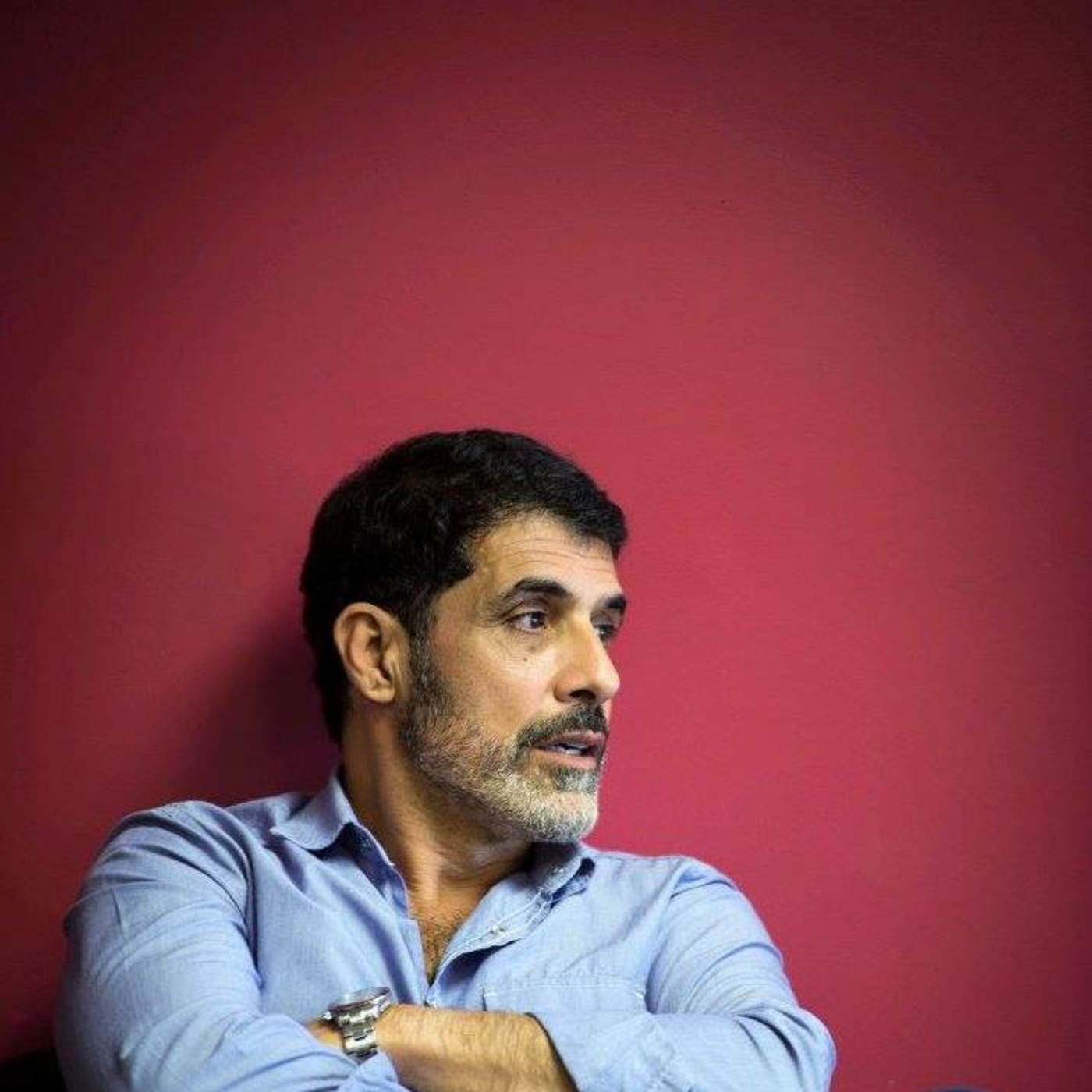
The Real Life Actor
Jeff Seymour
Audrey Helps Actors Podcast
Audrey Moore
Tipsy Casting
Jessica Sherman and Jenn Presser
Castability: The Podcast
The Castability App
Wendy Alane Wright's Secrets of a Hollywood Talent Manager Podcast
Wendy Alane Wright
Think Bigger Actors Podcast
DaJuan Johnson
ACTORS! YOU ARE ENOUGH!!
Amy Lyndon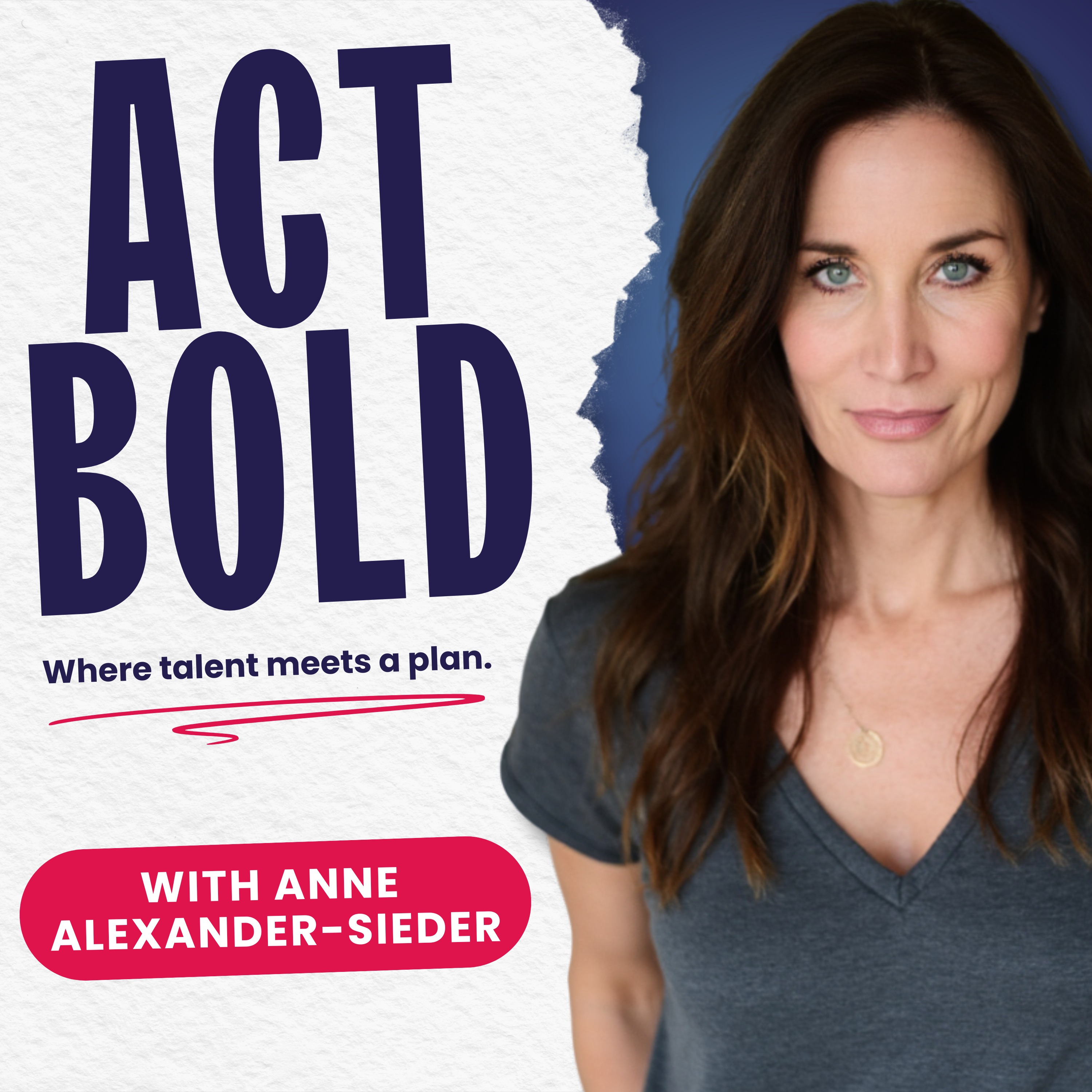
Act Bold - Where Talent Meets A Plan
Act Bold with Anne Alexander-Sieder
An Actor Survives
Emily McKnight
Podnews Weekly Review
James Cridland and Sam Sethi
Buzzcast
Buzzsprout
Box Angeles (for Actors)
Mike 'Box' Elder
Brian Breaks Character
Brian Patacca
Celebrity Catch Up: Life After That Thing I Did
Genevieve HassanCinema Australia
Cinema Australia
Don't Be So Dramatic
Rachel BakerEquity Foundation Podcast
Equity Foundation PodcastIn The Moment: Acting, Art and Life
Anthony MeindlIn the Envelope: The Actor’s Podcast
Backstage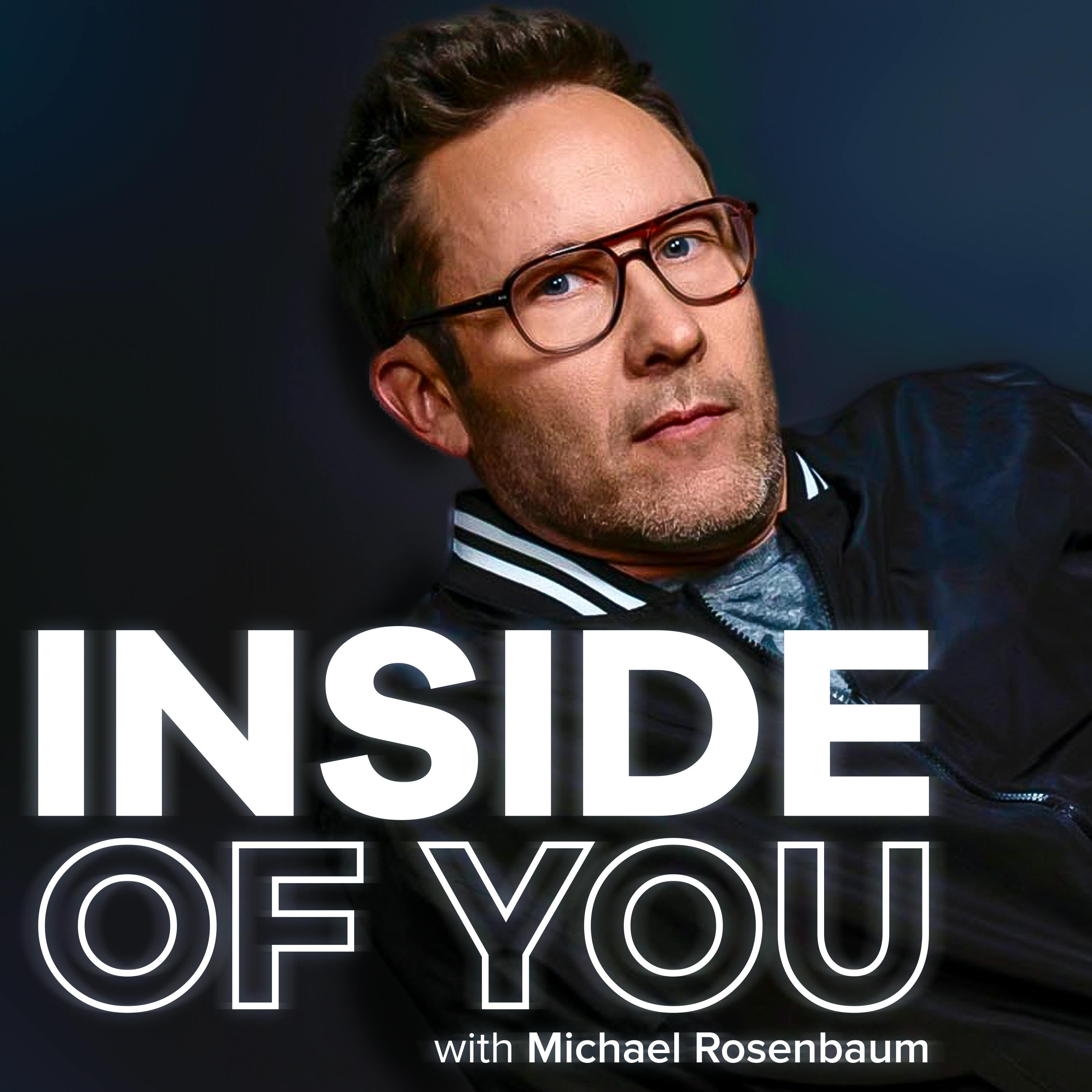
Inside of You with Michael Rosenbaum
Cumulus Podcast Network
Inspired by Nick Jones
Nick Jones
Killer Casting
Lisa Zambetti, Dean Laffan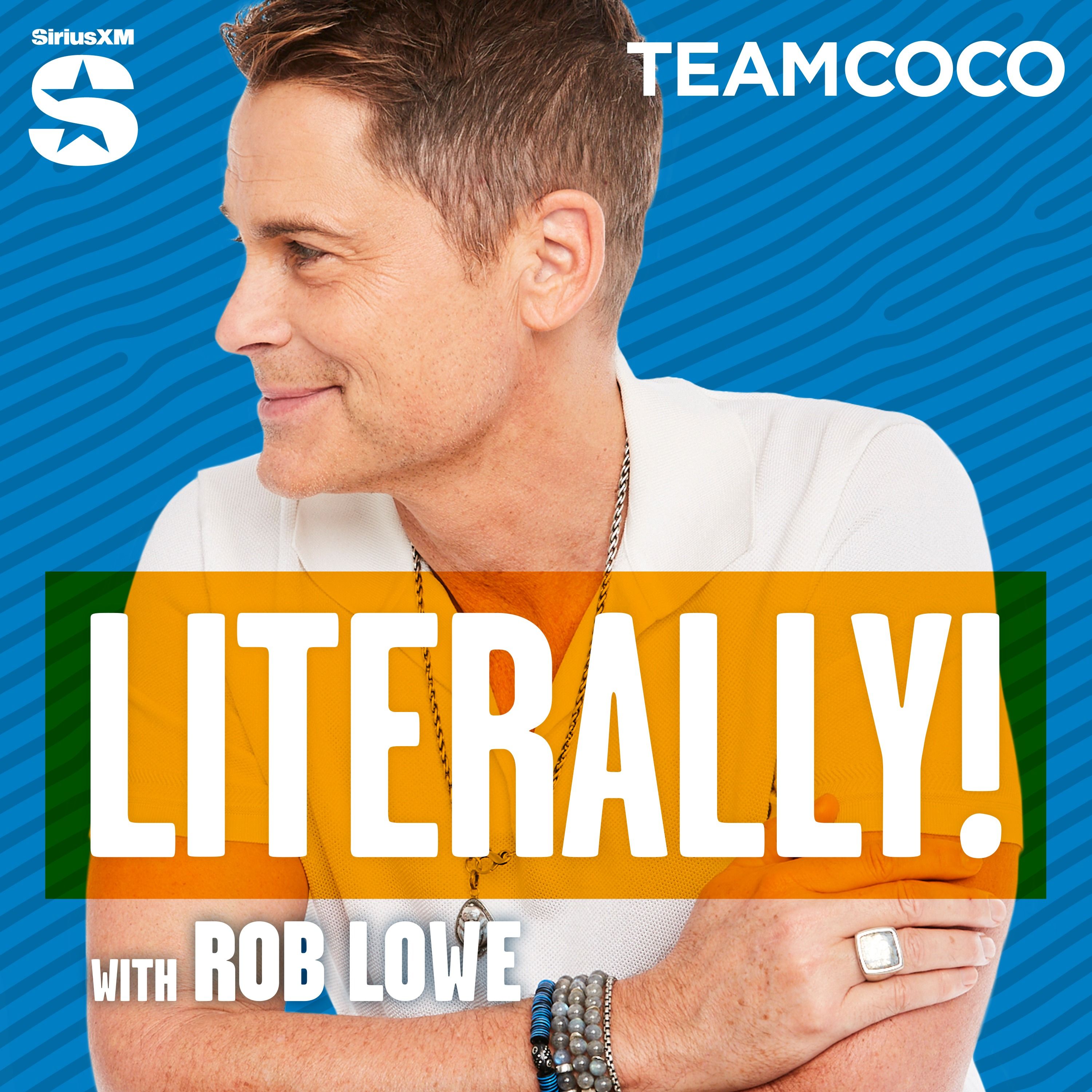
Literally! With Rob Lowe
Stitcher & Team Coco, Rob Lowe
Need To Know
Bryce Zabel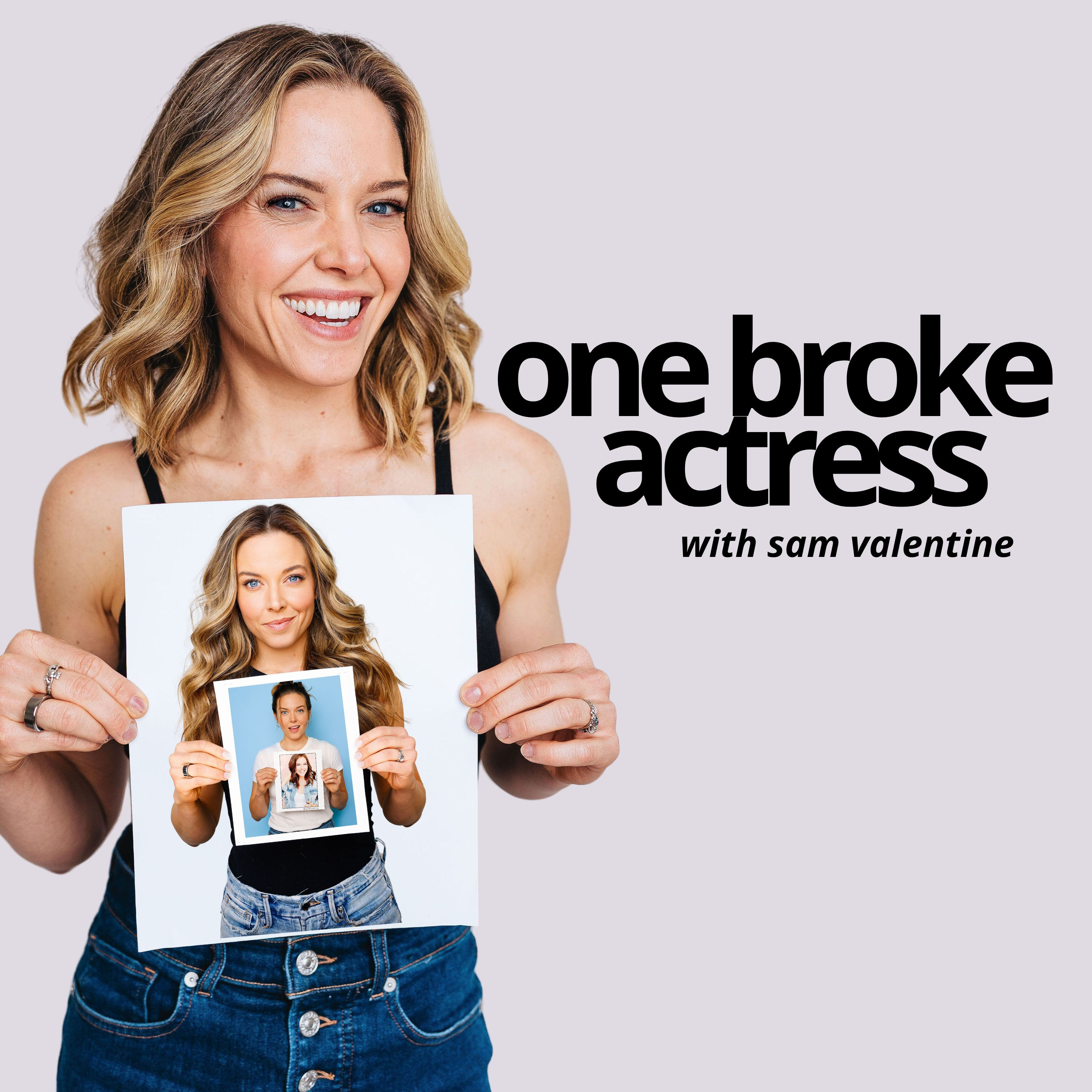
One Broke Actress
Sam Valentine
REAL ONES with Jon Bernthal
Jon Bernthal
SAG-AFTRA
SAG-AFTRA
SAG-AFTRA Foundation Conversations
SAG-AFTRA Foundation
Second Act Actors
Janet McMordie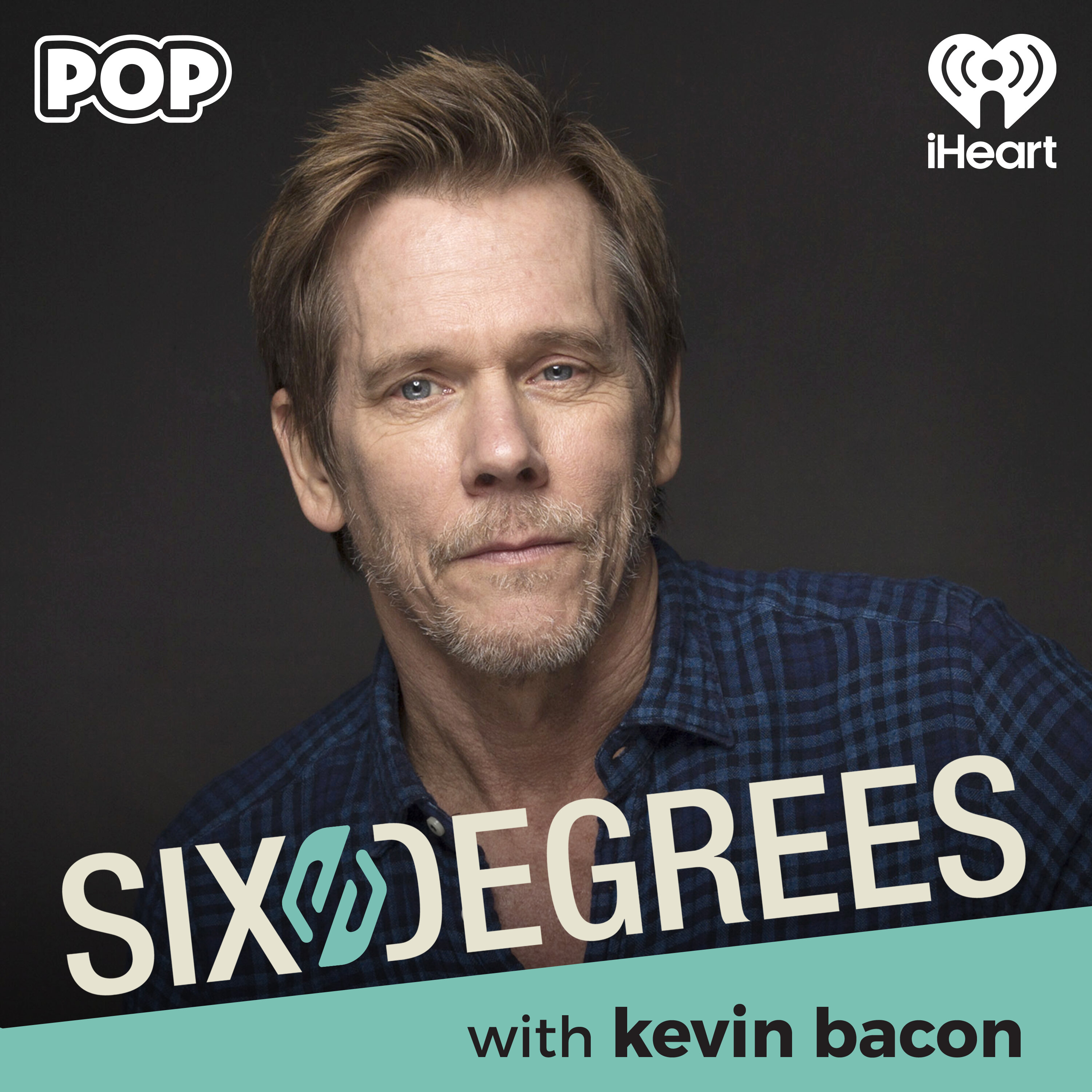
Six Degrees with Kevin Bacon
iHeartPodcasts and Warner Bros
SmartLess
Jason Bateman, Sean Hayes, Will Arnett
That One Audition with Alyshia Ochse
Alyshia Ochse
The 98%
Alexa Morden
The Acting Podcast from The BGB Studio
Risa Bramon Garcia and Steve Braun